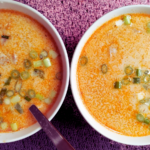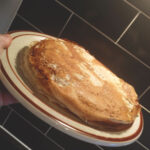December 2023
Oat porridge has been a staple morning starter across cultures worldwide with variations in how it’s prepared or served. The use of oats as porridge dates back centuries, representing a nutritious and easily accessible meal. Warm, comforting and nourishing, your morning porridge can help you start the day right and keeps you fuller for longer. Oat porridge is celebrated for its nutritional value, but it could get boring to eat the same kind all the time. A small number of people with Coeliac Disease are sensitive to avenin in oats, which is a protein similar to gluten. And for the fact that oats are naturally gluten free but the gluten-free version comes with a higher price tag because of extra tests and that the production and packaging lines need to be kept separate from anything else containing gluten, I’ve been looking for other solutions for a while now.
Gluten-free is not affordable
In March, Coeliac UK published a comprehensive report about the high cost of a gluten free diet which is the only “cure” for Coeliac Disease and some other health conditions. It concluded that a weekly gluten free shop can be as much as 20% more expensive than a standard weekly food shop. After this report and some excellent effort from the wider community, some supermarkets lowered the price of their own brand gluten-free staple foods, which is a fantastic step forward. But more needs to be done.
Price comparison: mid-range UK supermarkets (December 2023)
For an end of the year comparison, ASDA Scottish Porridge Oats, 1kg, cost £1.25 (£0.13 per 100g) and Nairn’s brand gluten-free ones, 450g, cost £2.20 (£0.48 per 100g). Tesco Scottish Porridge Oats, 1kg, cost £1.25 (£0.13 per 100g) and Quaker brand gluten-free ones, 510g, cost £3.85 (£0.76 per 100g). Just by looking at these two UK supermarkets, it seems they don’t do their own brand gluten free oats not to mention a decent size package.
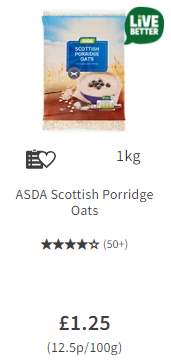
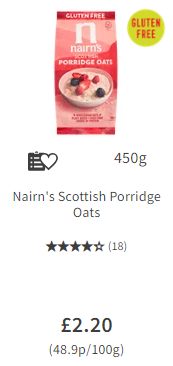
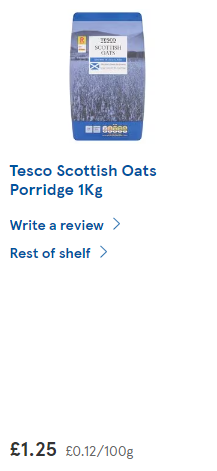
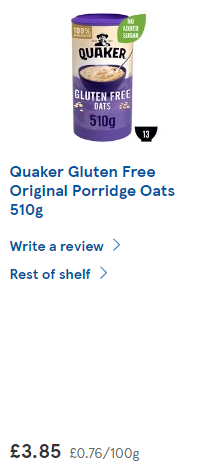
But if we compare for example Morrison’s own brand oats with the gluten free ones (yes they do a them in a decent size package too), the price per 100g comes up as £0.09 for the Savers range and £0.38 for the gluten free version. That’s a £0.29 difference per 100g and a 4.2 times higher price for the gluten free version. This makes the Savers range a bit hypocritical because it’s not inclusive. Sainsbury’s does an own brand version as well but it’s a small pack. The Sainsbury’s own brand Scottish Porridge Oats, 1 kg, cost £1.25 (£0.13 per 100g) and Free From Oats, 450g, cost £1.70 (£0.38 per 100 g), making the difference £0.25 per 100g as the gluten free oats cost 2.9 times more.
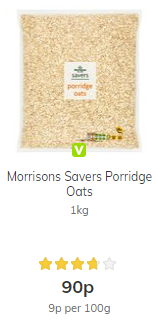
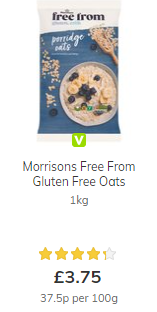
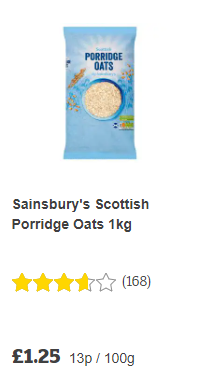
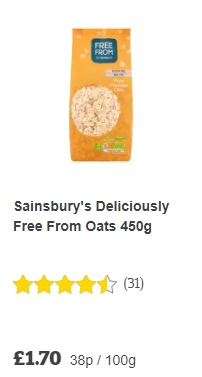
But the one online supermarket I swear by, is Healthy Supplies which was a lifesaver when I had just started out on a gluten-free diet and due to the pandemic everyone was buying the gluten free ingredients leaving people like me with nothing. The price for the 2kg package comes currently up as £0.41 per 100g. In comparison, the contaminated (let’s call them that to avoid saying “normal”) rolled porridge oats, 2kg, cost £3.99 (£0.20 per 100g). A £0.21 difference per 100g making the gluten free oats cost 2.05 times more. Not the cheapest in this analysis but if you compare the difference and you’re conscious about the environmental impact of smaller packages, then this option is definitely worth considering.
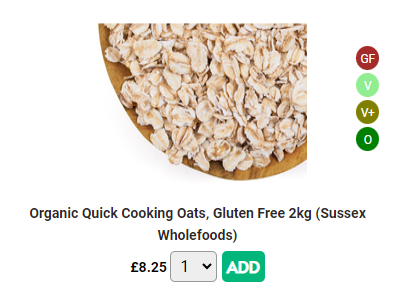
In the following paragraphs I will be looking at other gluten-free porridge alternatives and comparing them against each other grain by grain to hopefully help you out a little bit more in these testing times. Just be careful and consider your own sensitivity when picking these up as some of them can be a “may contain”.
Price comparison of alternative porridge grains:
The following prices are taken from the Healthy Supplies website for general comparison purposes in December 2023 (some of which are a “may contain” so please be careful when considering to buy these):
- Organic buckwheat flakes, 1kg: £8.25 (£0.83 per 100g)
- Organic brown rice flakes, 1kg: £6.49 (£0.65 per 100g)
- Organic millet flakes, 1kg: £6.95 (£0.70 per 100g)
- Organic quinoa flakes, 1kg: £9.25 (£0.93 per 100g)
Preparing gluten free porridge: four alternatives to oats
Below you’ll find an overview of the slight differences in cooking these gluten-free grains as your healthy morning porridge:
| Gluten-free oats | Buckwheat flakes | Brown rice flakes | Millet flakes | Quinoa flakes | |
|---|---|---|---|---|---|
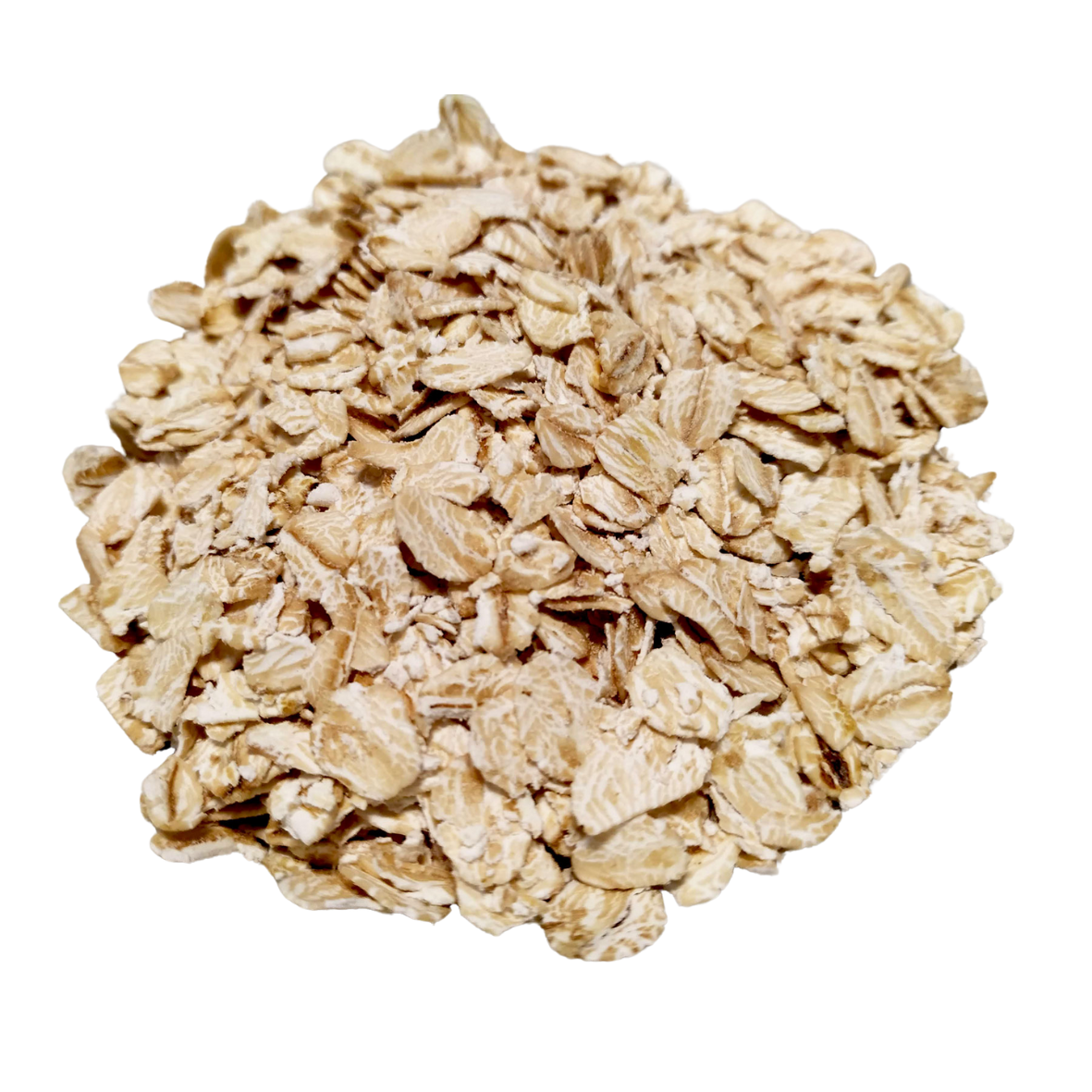 | 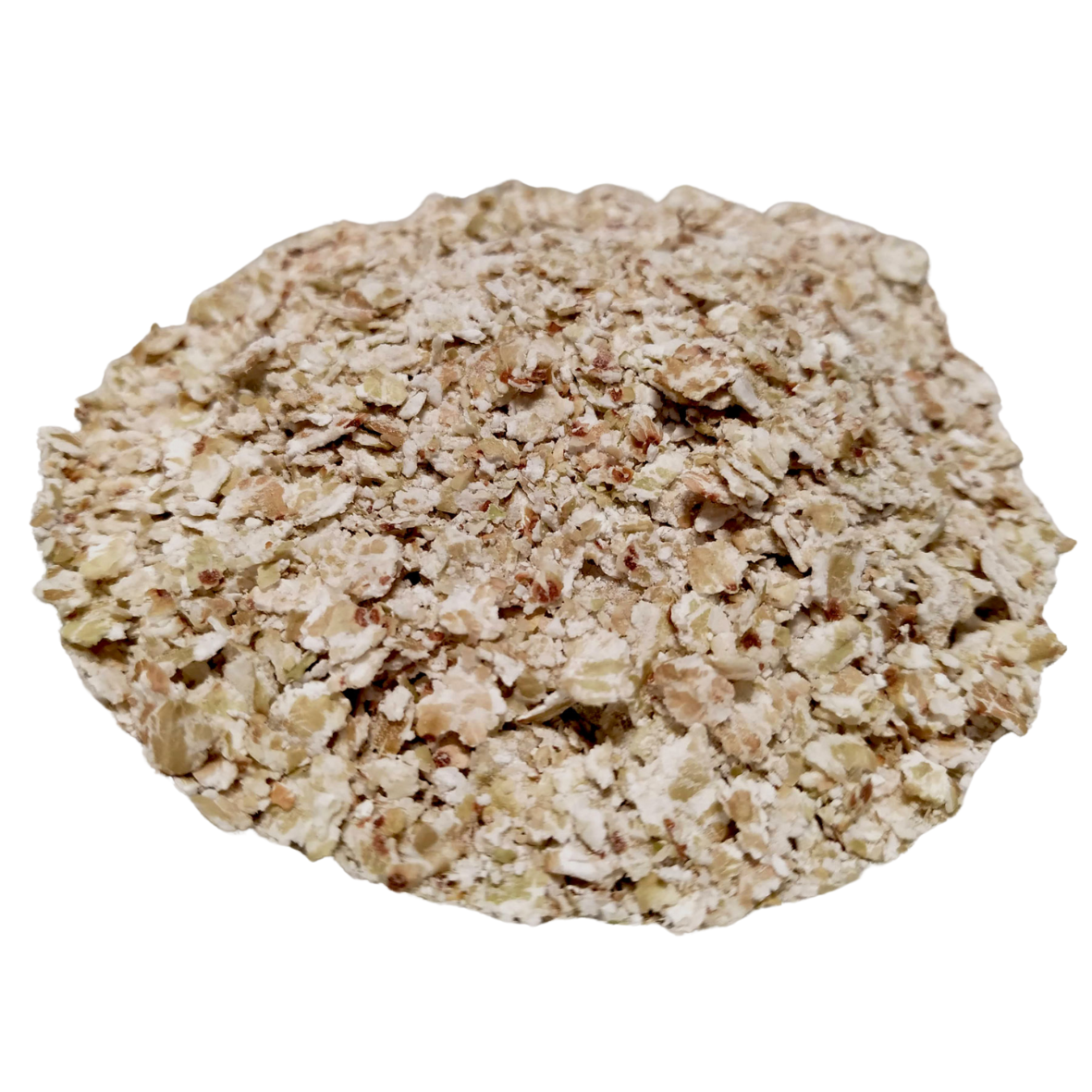 | 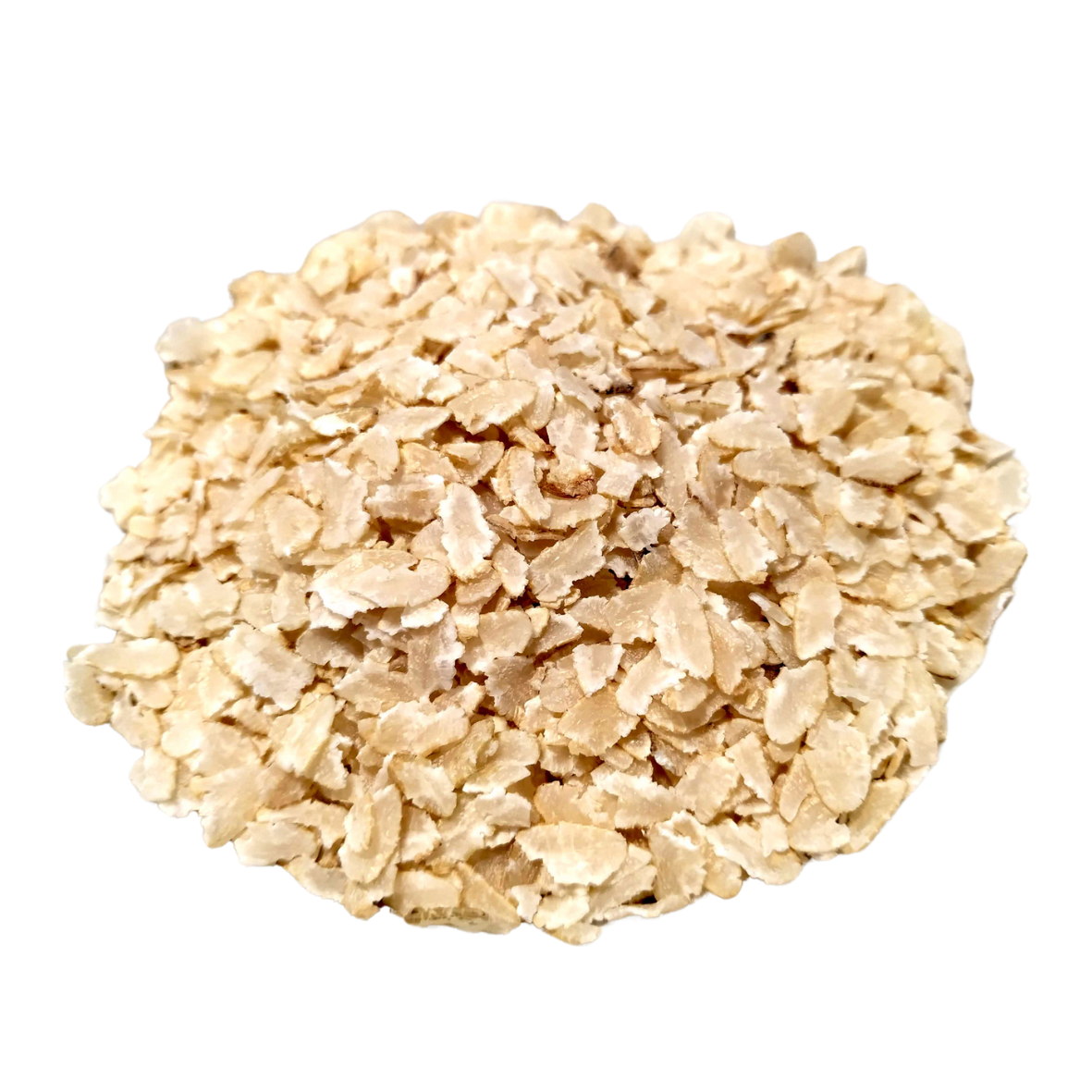 | 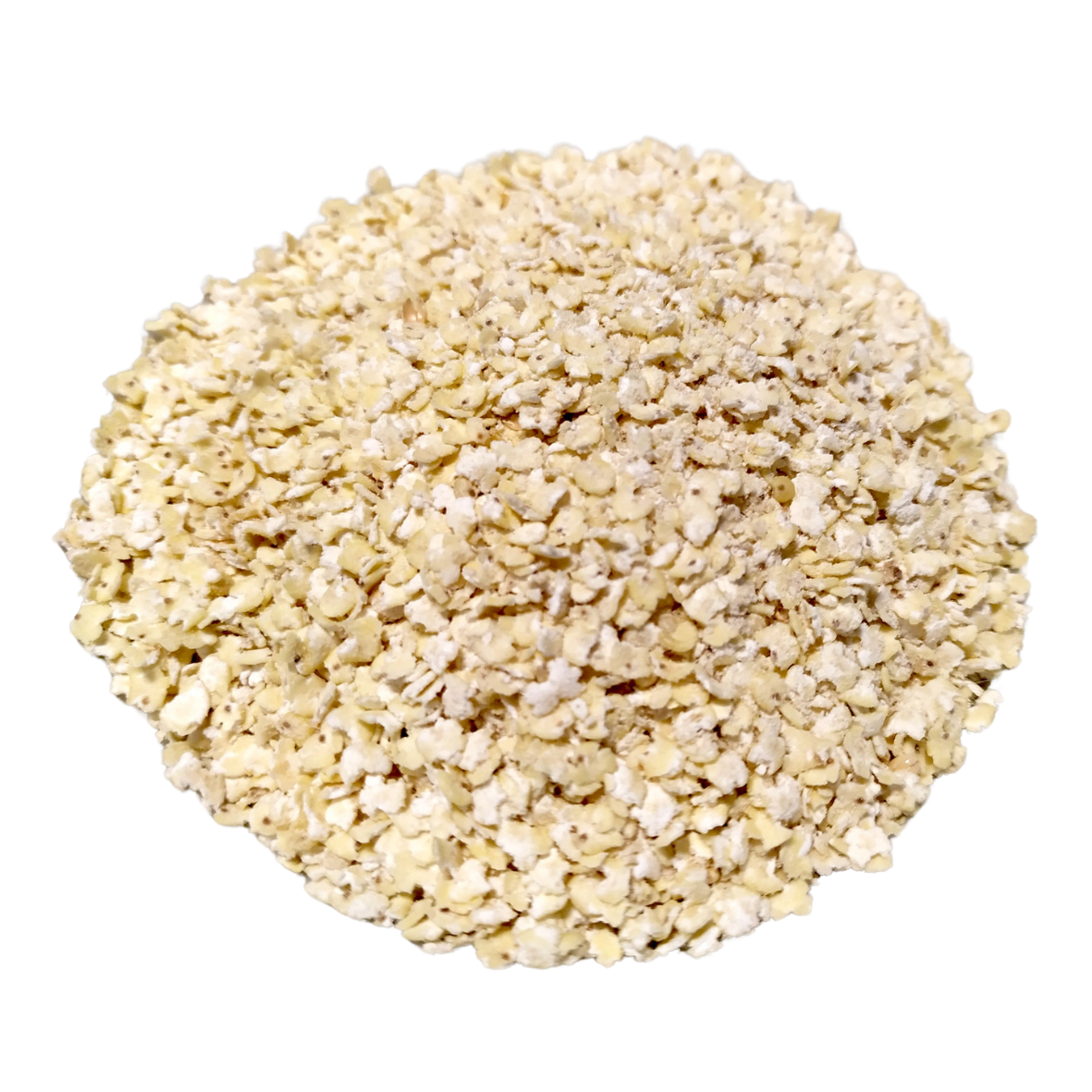 | 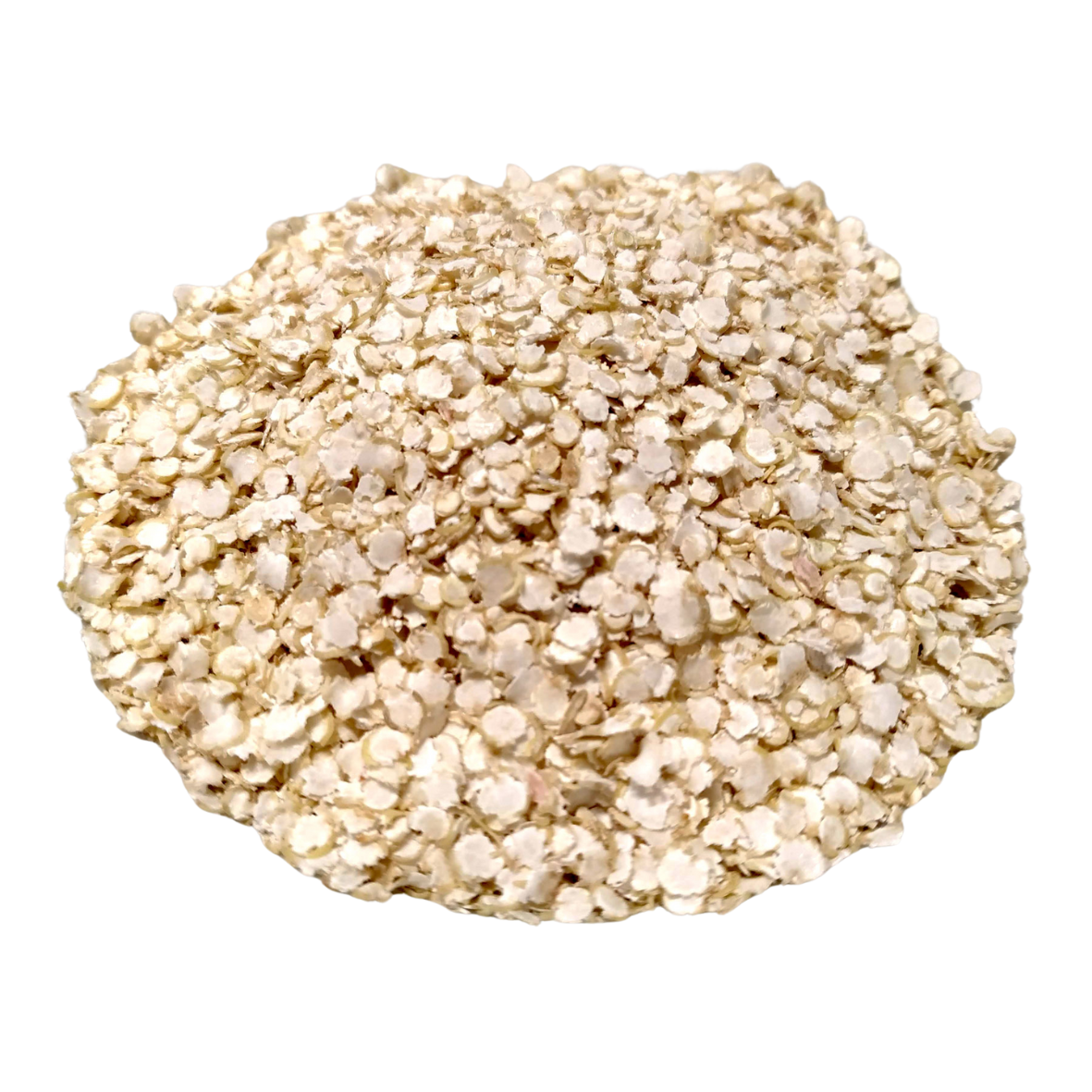 | |
| Grains (depending on the desired consistency) | 55-60g / 1,5dl | 60-65g / 1,5dl | 100g / 2dl | 70-75g / 1,5dl | 65-70g / 2dl |
| Liquid – 250 ml |  |  |  |  |  |
| Step 1 – Bring liquid to boil |  |  |  |  |  |
| Step 2 – Add grains | Stir and boil for 3-5 minutes (covered) | Stir vigorously for 30 seconds | Stir and boil for 2-3 minutes (covered) | Stir vigorously for 30 seconds | Stir and boil for 1-2 minutes (covered) |
| Step 3 – Remove from heat | Let sit for 2 minutes (covered) | Let sit for 2-5 minutes (covered) | Let sit for 2-5 minutes (covered) | Let sit for 2-3 minutes (covered) | Let sit for 2-3 minutes (covered) |
| Porridge taste | Relatively neutral but mild, earthy and comforting | Distinctively earthy and nutty | Mild, nutty flavour profile | Very distinctively mild and nutty, slightly sweet | Uniquely mild and earthy with nutty undertones |
| Porridge texture | Creamy | Crunchy | Light and fluffy | Light and fluffy | Light and fluffy |
You can find more detailed cooking instructions for buckwheat flake porridge here. So you can easily adjust the cooking method of other grains according to the above table. To make things even more interesting, you can mix together buckwheat and millet flakes or brown rice and quinoa flakes due to their similar cooking methods.
Health benefits: five gluten-free grains
Let’s discover and compare the nutritional profiles of each grain/flake here. All information per 100g according to the manufacturer.
| Nutritional information (per 100 g) | Gluten-free oats | Buckwheat flakes | Brown rice flakes | Millet flakes | Quinoa flakes |
|---|---|---|---|---|---|
| Energy | 361kcal | 349kcal | 357kcal | 165kcal | 344kcal |
| Protein | 12g | 17.8g | 8.3g | 14g | 13.6g |
| Fat | 6g | 4.1g | 2.6g | 5g | 7.1g |
| Carbohydrates | 60g | 57.2g | 74g | 71g | 55.7g |
| Fibre | 9.3g | 6.2g | 3g | 3.3g | 11.5g |
I took the following nutritional info from Healthline to remind us (myself included) why we need to include these grains in our diet.
Oats are also a good source of high quality protein, with a good balance of essential amino acids. Loaded with important vitamins, minerals, and antioxidant plant compounds such as Manganese, Phosphorus, Magnesium, Copper, Zinc and Vitamin B1.
Buckwheat flakes are produced by steaming, dehulling, flattening and drying raw buckwheat groats. Carbs are the main dietary component of buckwheat groats. Protein and various minerals and antioxidants are also present. Buckwheat is richer in minerals than many common cereals, such as rice, wheat, and corn. However, buckwheat is not particularly high in vitamins. Manganese, Copper, Magnesium, Iron and Phosphorus.
Brown rice flakes are similarly steamed, puffed, flattened and dried from raw brown rice grains. Brown rice is surprisingly packed with nutrients, vitamins and antioxidants, such as Vitamin B1, Vitamin B6, Vitamin B3, Copper, Manganese, Selenium and Magnesium.
Millet is a fairly new discovery for me on a gluten-free diet because as a child it was one of those things that my mum forced me to eat and I didn’t particularly like it. Millet, an ancient grain, boasts high protein, fibre, and antioxidant contents, such as Calcium, Phosphorus, Magnesium, Folate and Iron.
Quinoa, another ancient grain, is also very nutrient-dense. Some of the main ones are Manganese, Copper, Magnesium, Phosphorus and Folate. Quinoa flakes are produced through puffing, flattening and drying quinoa seeds.
Conclusion
Oat porridge remains a timeless breakfast choice that transcends cultural boundaries. Its history, nutritional richness contributes to its status as a beloved morning starter across the globe. As dietary preferences and necessities evolve, oat porridge continues to stand the test of time, offering comfort, nourishment, and a wholesome start to the day for countless individuals worldwide.
From the mid-range UK supermarkets, Morrisons is the best option for gluten-free oats when you’re looking to buy everything from one place in terms of your food shopping but they’re definitely not inclusive with their Savers range which could be the case with some other supermarkets as well.
By looking at alternative grains, the price tags reflect the health benefits of each of them. Quinoa is the healthiest by far but also the most expensive. Millet has won my heart because it tastes amazing and the porridge comes out just as comforting as oat porridge. Here’s me hoping we can all make better informed choices, by raising awareness of the need for affordable food and sending a clear message to those in charge.




